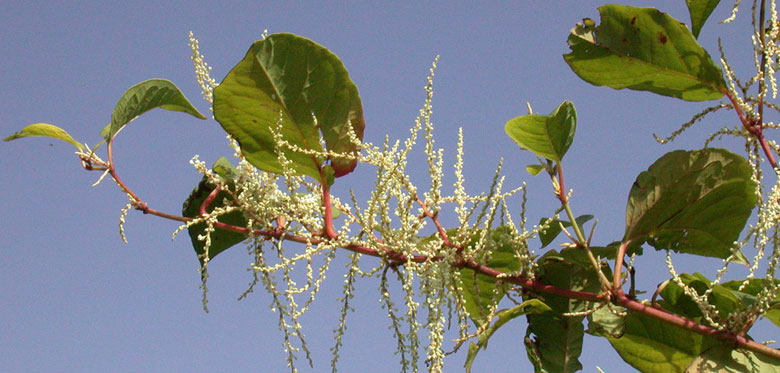A recent study by Leeds University has cast doubt on the destructive and fearsome reputation of Japanese Knotweed.
The study found there was ‘no evidence’ to suggest that Japanese Knotweed caused significant structural damage. In fact, ecologists found that Japanese Knotweed ‘posed no more of a threat to a property than trees, climbers and other shrubs’.
The results of the study have led to calls to end the stigma associated with the plant, though others insist that it remains a serious threat to properties across the UK, potentially cracking concrete and damaging foundations.
‘A legal nuisance’
In spite of the recent findings, legal experts are warning homeowners and landlords about their legal obligations should they find the invasive species on their property.
Joanne Ellis, a partner in dispute resolution at the national law firm, Stephensons, has dealt with numerous cases of Japanese Knotweed in her career and urges people to remain vigilant or face the threat of prosecution or civil proceedings.
“Japanese Knotweed continues to strike fear into the heart of homeowners and landlords alike and is often an expensive and time-consuming problem to resolve. In fact, it’s estimated that it costs the UK economy around £166 million a year.
“While the destructive nature of Japanese Knotweed may be unclear, from a legal standpoint it’s much more straightforward. Under the Environmental Protection Act 1990, Japanese Knotweed is classed as ‘controlled waste’ and must be disposed of safely and securely once it’s identified.
“Japanese Knotweed is not just a weed or irritant – its presence and spread can be a legal nuisance and a court may decide you have acted negligently in not treating it at all or not treating it correctly. This is in addition to the detrimental effect the plant can have on the value of your property or that of your neighbours.
“Seeking specialist treatment and legal advice as soon as the plant is discovered is essential. Simply digging it out could actually be a criminal offence.”
Japanese Knotweed – What should I do?
DON’T touch it - Simply digging it out will not get rid of the problem, and more importantly, it could be a criminal offence. As it is so invasive, Japanese Knotweed is controlled waste and legislation exists to control how it is disposed of. You cannot simply put it in your green recycling bin.
Seek professional advice - You should seek advice immediately from a solicitor and companies who are accredited in the treatment and disposal of Japanese Knotweed. While it is aggressive and stubborn, it can be eradicated with the right help.
Isolate the area - it takes only one scrap to stick to the bottom of a shoe or garden tool for it to spread. All tools and equipment used in the area affected should be thoroughly cleaned immediately.
Is it just your property affected? - If you have Knotweed on your land, you need to act fast. If it spreads onto other people’s property, you could be liable for a claim in nuisance. You risk not only having to meet the cost of treatment but also paying compensation for other losses, such as the effect on value.
Check - It’s important to check your property over four years after the removal of Japanese knotweed to ensure its eradication was successfully completed. If the results are unclear, you can run a survey to establish whether Japanese knotweed was completely removed.
What are a landowners obligations?
If a landowner fails to treat Japanese Knotweed on their property and it either transfers to another property or its proliferation has a knock-on effect, they can be liable to legal action.
Firstly, those affected can seek an injunction to force the landowner to take action to remove the knotweed. This can include treatment costs, damages for the impact on the value of affected properties and further damages for any impact on the enjoyment of those properties. Considering the damage that knotweed can do – above and below ground – it is not inconceivable that damages could run into the hundreds of thousands.
In addition to an injunction, more recently introduced powers provide another opportunity for redress for affected land owners. The Antisocial Behaviour, Crime and Policing Act 2014 is used to protect against any pattern of behaviour which has a detrimental effect on quality of life. This can – and is – used to apply to knotweed.
Local councils and the police can issue a Community Protection Notice against the offending party – following written warnings about the anti-social behaviour. Failure to comply with such a notice, without reasonable excuse, is a criminal offence which could result in a fine or prosecution.
If you are experiencing problems with Japanese Knotweed, please do contact us here at Stephensons for a consultation on 01616 966 229.


